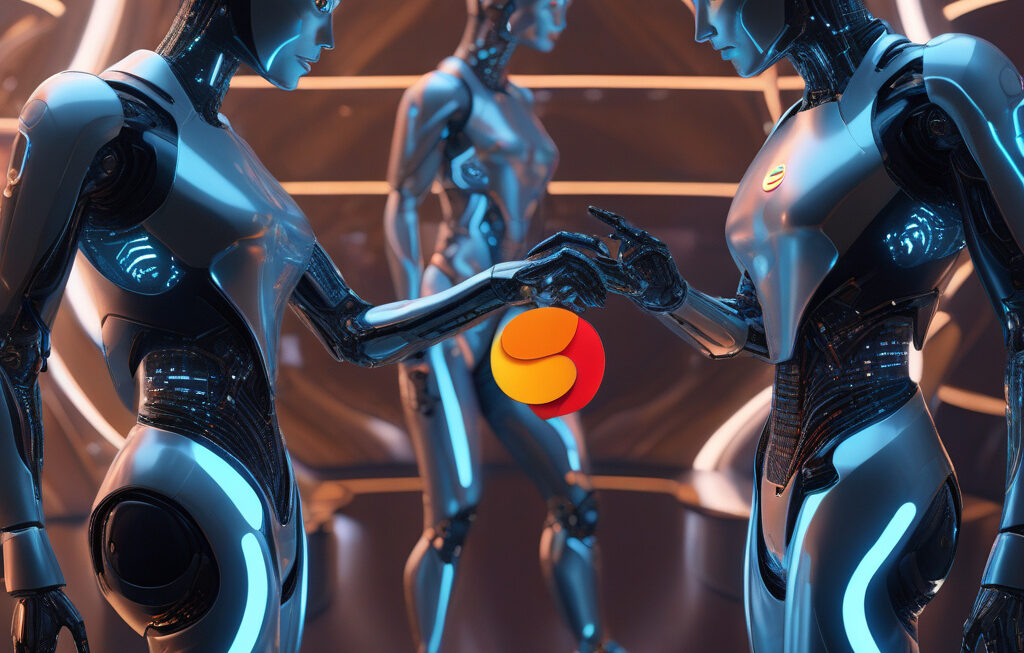The Strategic Shift Toward Open-Source AI
In the realm of artificial intelligence (AI), a significant transformation is underway. Global competition over AI is rapidly shifting, with open-source models now positioned to redefine not just technology but the balance of power in the digital era. This strategic shift towards open-source AI is reshaping the landscape of innovation, collaboration, and accessibility in unprecedented ways.
Open-source AI refers to AI technologies that are developed and distributed with source code that is freely available to the public. This approach stands in stark contrast to the traditional closed-source model, where proprietary algorithms and technologies are closely guarded and restricted to a select few. By embracing open-source AI, companies, researchers, and developers can collaborate more effectively, accelerate innovation, and democratize access to cutting-edge AI tools and solutions.
One of the key drivers behind the rise of open-source AI is the growing recognition of the limitations of closed-source approaches. In the past, proprietary AI systems were developed in isolation, leading to redundancies, inefficiencies, and siloed innovation. In contrast, open-source AI encourages transparency, peer review, and knowledge sharing, enabling rapid advancements and breakthroughs in AI research and development.
Moreover, open-source AI has the potential to level the playing field in the global AI race. By making AI technologies more accessible and affordable, open-source models empower a broader range of stakeholders, including startups, academic institutions, and developing countries, to harness the power of AI and compete on a more equal footing with tech giants. This democratization of AI not only fosters greater diversity and inclusivity in the AI ecosystem but also spurs innovation and drives economic growth on a global scale.
The strategic shift towards open-source AI is already yielding tangible benefits across various sectors. In healthcare, open-source AI tools are revolutionizing medical imaging, drug discovery, and personalized medicine, leading to more accurate diagnoses, targeted treatments, and improved patient outcomes. In finance, open-source AI algorithms are enhancing risk management, fraud detection, and algorithmic trading, enabling institutions to make better-informed decisions and mitigate financial risks more effectively.
Furthermore, the adoption of open-source AI is driving a new wave of entrepreneurship and collaboration. Open-source AI platforms such as TensorFlow, PyTorch, and Apache MXNet have become the foundation for a thriving ecosystem of AI startups, research initiatives, and community-driven projects. By providing a common framework and infrastructure for AI development, these platforms empower developers to build upon each other’s work, share best practices, and co-create innovative AI solutions that address real-world challenges.
As the strategic shift towards open-source AI continues to gain momentum, it is essential for stakeholders to embrace this new paradigm and leverage its transformative potential. Companies that embrace open-source AI stand to benefit from increased agility, scalability, and cost-effectiveness in their AI initiatives. Researchers and developers can tap into a wealth of resources, tools, and expertise through open-source communities and contribute to the advancement of AI for the benefit of society as a whole.
In conclusion, the strategic shift towards open-source AI represents a paradigm shift in the field of artificial intelligence, with far-reaching implications for technology, innovation, and global competitiveness. By embracing open-source models, stakeholders can unlock new opportunities, drive collaboration, and accelerate the development and deployment of AI solutions that have the power to shape the future of our digital world.
#AI, #OpenSource, #Innovation, #Technology, #GlobalCompetition












